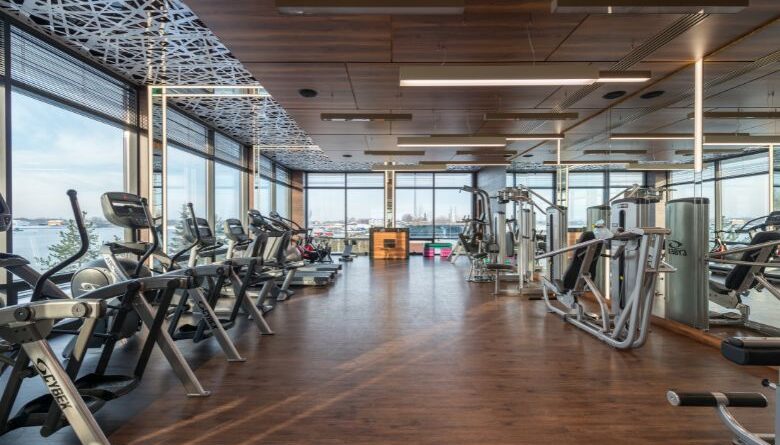Functional Fitness for Everyday Strength and Flexibility
Functional Fitness for Everyday Strength and Flexibility
In the pursuit of a healthier lifestyle, it’s essential to focus on exercises that go beyond aesthetics and offer real-life benefits. Functional fitness is a training approach that has gained popularity in recent years due to its practicality and effectiveness. This article delves into the concept of functional fitness, highlighting its significance in improving everyday strength and flexibility.
What is Functional Fitness?
Functional fitness involves exercises that mimic everyday movements and activities. Unlike traditional workouts that isolate muscle groups, functional fitness emphasizes compound movements that engage multiple muscle groups simultaneously. The goal is to enhance overall body strength, stability, balance, and flexibility.
Importance of Everyday Strength and Flexibility
Daily life demands physical capabilities that go beyond lifting weights or running on a treadmill. Functional fitness aims to prepare the body for real-world tasks, such as bending, lifting, twisting, and reaching. By focusing on everyday strength and flexibility, individuals can perform daily activities with ease and reduce the risk of injury.
How Functional Fitness Benefits Daily Life
The advantages of functional fitness extend beyond the gym. By incorporating functional exercises into your routine, you can experience improved posture, increased energy levels, enhanced mobility, and a reduced likelihood of experiencing aches and pains during daily tasks.
Key Principles of Functional Fitness
To fully embrace functional fitness, it’s crucial to understand its fundamental principles.
Movements that Mimic Real-Life Activities
Functional fitness revolves around movements that simulate activities performed in daily life. These include squatting, bending, pushing, pulling, and rotating. By practicing these functional movements, individuals can better adapt to the challenges they encounter in their routines.
Focus on Multiple Muscle Groups
Functional exercises engage multiple muscle groups at once, promoting balanced strength development. This approach contrasts with isolation exercises that target specific muscles, which might not translate well into real-life applications.
Improving Balance and Coordination
Functional fitness often incorporates exercises that challenge balance and coordination. By enhancing these aspects, individuals can navigate uneven surfaces and prevent falls, especially crucial for older adults.
Functional Fitness Exercises
To effectively improve everyday strength and flexibility, certain exercises stand out in the realm of functional fitness.
Squats and Lunges for Lower Body Strength
Squats and lunges are foundational functional exercises that target the lower body. They strengthen the quadriceps, hamstrings, glutes, and calves, promoting better stability and mobility.
Push-Ups and Planks for Upper Body Strength
Push-ups and planks are excellent for building upper body strength. They engage the chest, shoulders, triceps, and core muscles, providing a solid foundation for daily activities.
Core Exercises for Stability and Balance
A strong core is essential for maintaining stability and balance in everyday movements. Exercises like Russian twists, bicycle crunches, and leg raises help strengthen the core muscles.
Flexibility Exercises for Improved Range of Motion
Functional fitness also emphasizes flexibility exercises, such as yoga or dynamic stretching, to improve joint mobility and overall range of motion.
The Connection Between Functional Fitness and Daily Activities
The application of functional fitness in daily life is evident in various scenarios.
Functional Fitness for Better Posture
Sitting at a desk for extended periods can lead to poor posture. Functional exercises that target the back and core muscles can help combat this issue, promoting better spinal alignment and posture.
How Functional Fitness Aids in Carrying Groceries
Carrying heavy grocery bags requires strength, balance, and coordination. Functional fitness exercises that focus on the upper body and core can make this task more manageable and prevent strain.
The Impact of Functional Fitness on Daily Chores
Daily chores, such as lifting laundry baskets or cleaning, can take a toll on the body. With functional fitness, individuals develop the necessary strength and flexibility to perform these tasks with reduced effort and discomfort.
Functional Fitness for Enhanced Sports Performance
Beyond everyday activities, functional fitness can have a positive impact on sports performance.
Cross-Training Benefits
Functional fitness complements various sports by improving overall fitness levels and enhancing functional movement patterns that are applicable in sports-specific scenarios.
Injury Prevention through Functional Fitness
By improving strength, balance, and flexibility, functional fitness can reduce the risk of sports-related injuries, keeping athletes in top shape.
Agility and Speed Improvement
Functional exercises that involve quick movements and changes in direction can enhance agility and speed, critical attributes for many sports.
Incorporating Functional Fitness into Your Routine
Adopting functional fitness into your fitness routine requires a structured approach.
Setting Realistic Goals
Start with achievable goals, gradually increasing the intensity and complexity of exercises as you progress.
Creating a Functional Fitness Workout Plan
Incorporate a variety of functional exercises into your workout routine. Focus on both upper and lower body movements and include flexibility exercises.
Balancing Functional Fitness with Other Exercise Routines
While functional fitness offers numerous benefits, it is essential to balance it with other forms of exercise, such as cardiovascular training and restorative practices like yoga.
Nutrition and Functional Fitness
Proper nutrition is vital for supporting functional fitness goals.
Importance of a Balanced Diet
A well-rounded diet that includes a variety of nutrients supports overall health and enhances exercise performance.
Foods that Support Functional Fitness
Nutrient-dense foods rich in protein, healthy fats, vitamins, and minerals can aid in muscle recovery and energy production.
Hydration for Optimal Performance
Staying hydrated is crucial for maintaining energy levels and preventing fatigue during workouts.
Staying Motivated in Your Functional Fitness Journey
Consistency and motivation play a significant role in achieving functional fitness goals.
Tracking Progress and Celebrating Achievements
Keep track of your progress to stay motivated and celebrate milestones along the way.
Finding a Support System
Join a fitness group or find a workout buddy to stay accountable and motivated.
Exploring New Exercises and Challenges
Introduce variety into your functional fitness routine by trying new exercises and challenges regularly.
Addressing Common Misconceptions about Functional Fitness
There are some misconceptions surrounding functional fitness that need to be addressed.
Functional Fitness Is Not Just for Athletes
Functional fitness is suitable for people of all fitness levels, from beginners to seasoned athletes.
The Age Factor in Functional Fitness
Functional fitness is beneficial for individuals of all ages, and it can be adapted to meet different age-related needs and goals.
Myth: Functional Fitness Requires Expensive Equipment
Functional fitness can be performed with minimal or no equipment, making it accessible and affordable for everyone.
Conclusion
Functional fitness offers a holistic approach to exercise, focusing on everyday strength and flexibility to improve overall quality of life. By incorporating functional fitness exercises into your routine and complementing them with a balanced diet, hydration, and motivation, you can experience a transformation in your physical capabilities and daily activities.
FAQs
- What is the ideal frequency for functional fitness workouts?
- The frequency of functional fitness workouts depends on individual fitness goals and recovery capabilities. Generally, 2 to 3 sessions per week are sufficient for most people.
- Can functional fitness help with weight loss?
- Yes, functional fitness exercises can aid in weight loss by increasing overall calorie expenditure and improving muscle-to-fat ratio.
- Is functional fitness suitable for seniors?
- Absolutely! Functional fitness is highly beneficial for seniors as it enhances balance, coordination, and mobility, promoting independent living and reducing the risk of falls.
- Can I do functional fitness exercises at home?
- Yes, many functional fitness exercises can be performed at home with little or no equipment. Bodyweight exercises are particularly effective in this setting.
- How long does it take to see results with functional fitness?
- The time to see results varies based on individual factors, such as fitness level, consistency, and effort. With dedication, noticeable improvements can be seen within a few weeks.
- Heritage Cities: Walking Through Time in Historic Urban Centers





Pingback: Practicing Self-Compassion: Being Kind to Yourself | UTHSI 2023